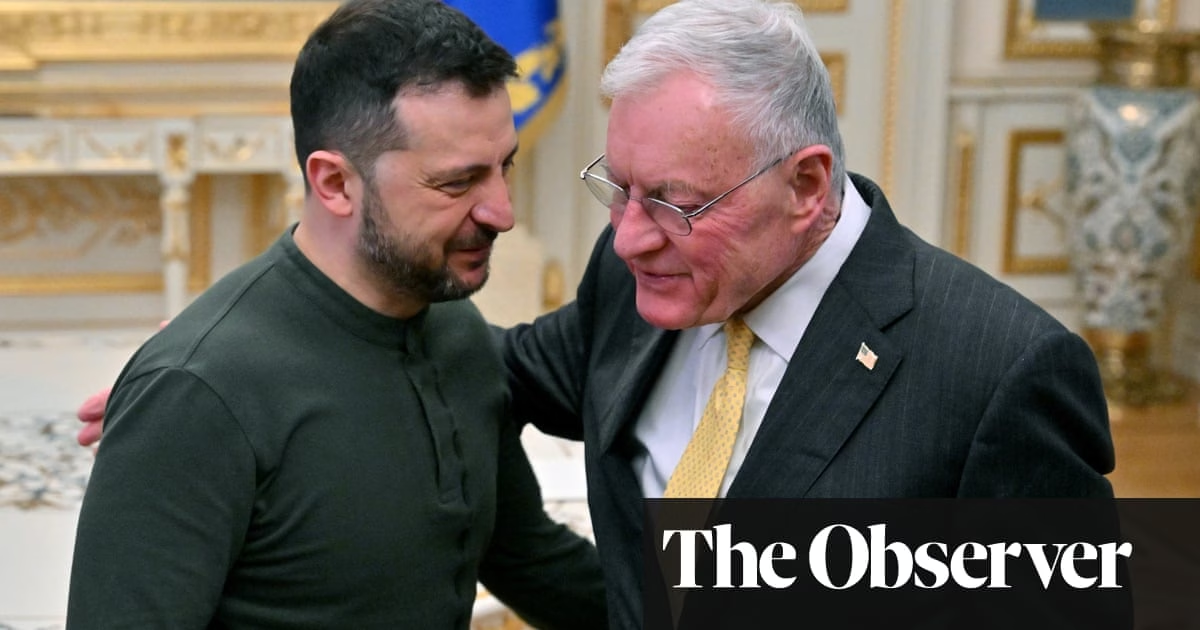A noticeable gasp echoed through the Council on Foreign Relations as Keith Kellogg, the White House’s special envoy for Ukraine and Russia, described the US decision to halt intelligence sharing and military aid to Kyiv as equivalent to striking a farm animal with a wooden plank.
“Quite frankly, the Ukrainians brought this upon themselves,” Kellogg remarked, causing the veteran diplomats, scholars, and journalists in attendance to react in astonishment. Several covered their faces with their hands. “To put it simply, it’s akin to hitting a mule with a two-by-four across the nose, capturing its full attention due to the substantial support we provide,” he added.
Since the White House summit between Trump and Zelenskyy, US-Ukraine relations have deteriorated sharply. Trump’s entourage, who were his staunchest advocates for Ukraine, including Secretary of State Marco Rubio, National Security Adviser Mike Waltz, and Kellogg, have turned into vocal skeptics or been sidelined.
A former senior diplomat noted, “We’re aware that [the MAGA faction] is awaiting a pretext to pounce. That’s where you see the posturing from Rubio, Kellogg, and Waltz, which unsettles those who understand America’s interest in stopping Putin’s victory in Ukraine.”
Parallelly, there’s an uptick in Eurosceptic figures close to Trump, such as Elon Musk, Tucker Carlson, and VP JD Vance, who exacerbated the rift between Trump and Zelenskyy by criticizing European leaders.
Vance has strategically fanned divisions with Europe, even briefing media ahead of speaking during Trump’s meeting with Keir Starmer to criticize “infringements on free speech” in the UK.
“First, Zelenskyy needs to maintain public silence on concerns with Trump’s policy moves, despite their validity,” a former senior official suggested. “It would be beneficial for him to send a lower-level team to the Riyadh meeting and sign the mineral agreement on any terms the Trump administration desires.”
European officials speculate that Vance orchestrated Kelvin’s stance to marginalize others. Figures like Rubio, Waltz, and Kellogg, who were expected to maintain Trump’s foreign policy on track, have instead followed Trump in pressuring Ukraine.
The shift in relations between the US and Ukraine has been pronounced since the meeting in the Oval Office. Rubio last week called for an end to what he framed as a nuclear proxy war between the US, helping Ukraine, and Russia, a sentiment that aligned with Kremlin’s view.
Kellogg’s speech marked a pivot in US policy, advocating for a neutral stance as an arbiter between Russia and Ukraine and the need to “reset relations with Russia” for US national security.
This realignment, if it continues under a new Trump administration, suggests those who backed previous policies are quickly falling in line to support Trump’s position on ending the war through pressure tactics targeted at Ukraine.
While European officials hope that Zelenskyy and Trump’s officials can enact a meeting without explosive results, there’s an underlying discussion about the long-term viability of the US as a partner for Ukraine, with the latter having limited options but to seek reconciliation.








